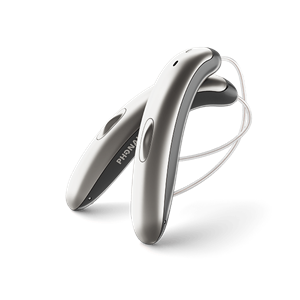4 ways to protect your hearing during the winter | Connect Hearing


4 ways to protect your hearing during the winter | Connect Hearing
5 min.
Publication Date: January 29, 2020
How can I protect my ears in the winter?
Winter in Canada is in full swing which means the days of freezing temperatures and harsh weather conditions are upon us. While most people wouldn’t think to leave their house without a coat, boots, or gloves during the winter, it’s just as important to remember to protect your ears when venturing out in the cold. From the bitter cold, to outdoor activities, winter can do a number on your hearing if you don’t take the necessary precautions. Keep reading for some important steps to keep your ears safe this winter.
Keep your ears warm and dry
Have you ever noticed that your ears are always the first part of your body to get cold? This is because, like your nose, your ears are comprised mainly of cartilage and contain hardly any insulating fat. This causes them to get cold faster than other parts of your body and puts them more at risk when going outside in the cold winter air. In addition, winter weather such as rain or snow also exposes your ears to extra moisture, which can result in a greater risk of infection. To keep your ears warm and dry, make sure to wear a toque, earmuffs or scarf when venturing outside during the winter.
Skiers and snowboarders, beware of exostosis
If you’re an avid skier or snowboarder, it’s important to take extra precautions with your ears. Excessive exposure to extreme cold and wet weather can make you more at risk of developing exostosis, a rare condition where your body increases bone growth in the ear canal as a way of blocking out the cold. This increased growth can cause the ear canal to become blocked, which increases the risk of infection in your ear due to trapped fluid. This condition is also known as surfer’s ear because of the cold conditions surfers are regularly exposed to, and is also a concern for skiers and snowboarders who are regularly exposing their ears to cold and wet conditions. To avoid exostosis, make sure you are keeping your ears properly covered and dry when taking part in your favourite snow activities.
Protect your ears from loud winter noises
With the winter comes the snow, and with the snow comes the need to bring out your snowblower. However, consistent exposure to loud noise from outdoor machinery can have detrimental effects on your hearing. A snowblower can exceed 100 decibels, which if exposed to for enough time (approximately 2 hours), can do some serious damage on your hearing. If you need to operate a snowblower, make sure you do so in short bursts and to wear proper hearing protection. Wearing proper earmuffs or earplugs will give your ears the protection they need. While you can purchase basic earplugs at any drugstore, if you are spending a lot of time in loud environments, you may want to consider getting custom made earplugs.
Take extra care of your hearing aids
Along with your ears, your hearing aids are also susceptible to the damaging effects of the harsh winter conditions. Take extra care of your devices during the winter months with these important habits:
Be mindful of moisture
Moisture again is one of the main culprits you’ll want to protect your hearing aids from during the winter. Along with protecting your ears, making sure to wear a hat or scarf when venturing outside will also shield your hearing aids from being exposed to excessive moisture caused by the rain or snow. However, keeping your hearing aids completely dry is not an easy feat, which is why it’s also important to wipe away any moisture your hearing aids have collected, in order to avoid corrosion. Make a habit of checking your hearing aids once you get back inside, and wipe away any wetness on the device right away.
Check your hearing aid batteries more often
When hearing aids are exposed to cold temperatures, the battery may drain faster than usual. Additionally, the batteries themselves are also susceptible to damage in cold weather. It’s a good idea to pay extra attention to the charge on your hearing aid battery during the winter as well as ensure you’re storing your spare batteries in a warm and dry place.
Stay on top of your hearing this winter and learn more about what custom hearing protection could do for you by booking an appointment with one of our hearing care professionals at your nearest Connect Hearing clinic.



